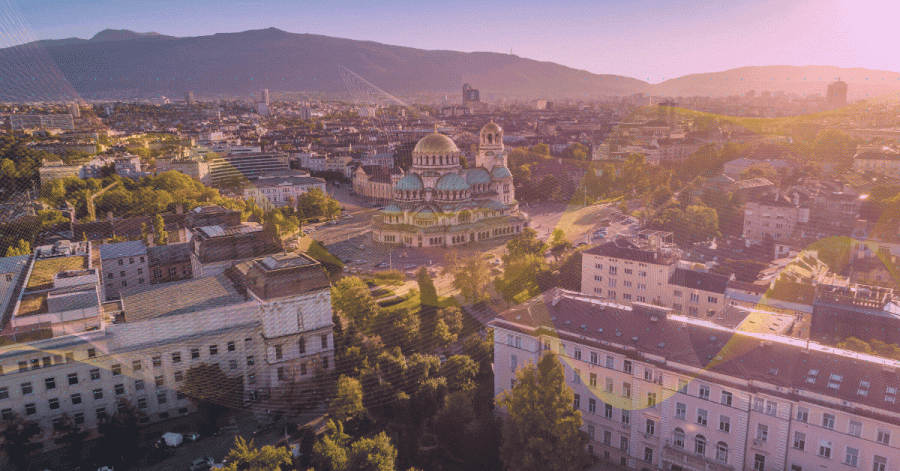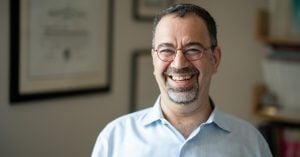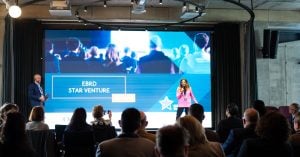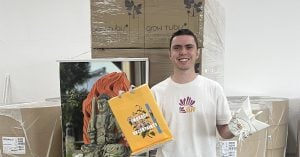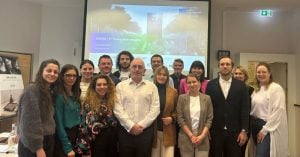With around 74.9% of European citizens living in cities in 2020 (a figure expected to rise to 83.7% by 2050), urban ecosystems can be powerful drivers of change. Yet rapid urbanization also brings infrastructure challenges, and cities can be a source of pollution and a contributor to climate change. The smart city transformation concept aims to enable a green, effective, and sustainable growth for cities. As a result, the market for smart cities is growing fast.
On April 12th, the Sofia Municipality organized the first edition of Digital Sofia. Stakeholders from all economic sectors gathered to discuss the vision, needs, and constraints on each side, identify roadblocks, and kick off coordinated efforts to push the smart city transformation agenda.
To review where Sofia is on the road to smart city transformation, as well as report on the major takeaways from the recent conference, The Recursive reached out to Gencho Kerezov, the Deputy Mayor of Sofia Municipality in the field of Digitalization, Innovation, and Economic Development.
He is responsible for the creation of the Action Plan for the Digital Transformation Strategy of Sofia, the development of a digital duplicate of the municipality, the overall transformation of the administrative processes in the municipality and its migration to other cities.
In this interview, you will read more insights on:
- What are the characteristics of a smart city, as well as common misconceptions around the topic;
- Key challenges brought up by the business sector, including the need to integrate innovative solutions at a national and even international level;
- The city administration’s plans to increase the coordination of efforts with all major stakeholders;
- Examples of smart city pilots and public-private partnerships in Sofia, as well as what is needed to scale these efforts.
The Recursive: What are the key characteristics of a smart city? And what is the distinction between “digital” and “smart”?
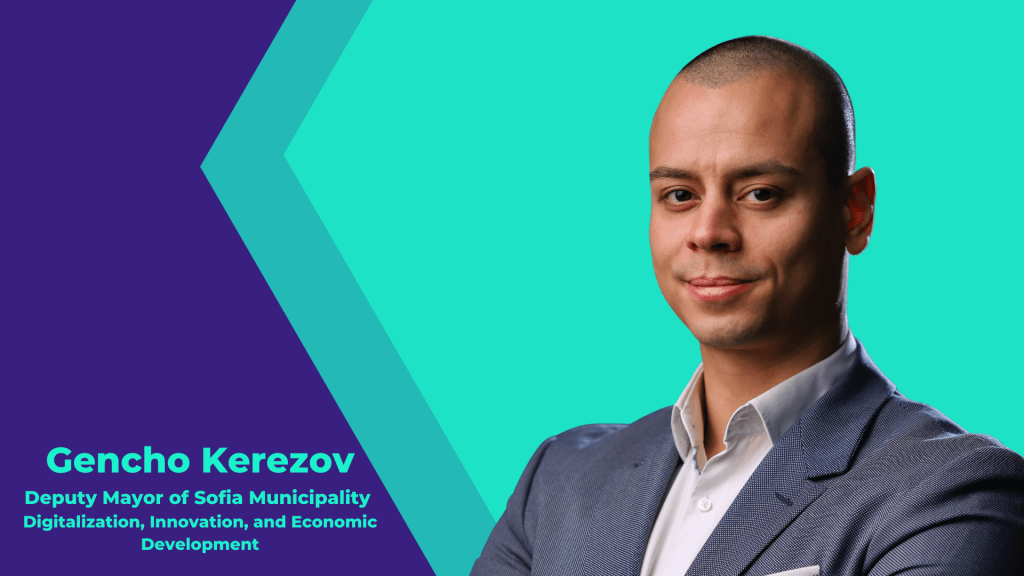
Gencho Kerezov: Internally, when we discuss digitalization, a common misconception is that we are just translating a project into a digital version. This is not the case. What is important with both digitalization and smart cities overall is to optimize processes and to consider the legal frameworks of these processes.
That said, a smart city includes digitalization but is not limited to it. A smart city can optimize resources, including money, energy and the time of the population. It also optimizes processes, such as traffic, the consumption of energy, the management of green spaces, to name a few.
Can you give us an example of such an initiative implemented in Sofia?
Many companies and a lot of my colleagues in the administration mentioned to me what a huge impact a proper implementation of digital services can have. For example, statistics show that getting a service from the municipality takes you three hours on average (switching buildings, waiting in line etc.). There are some services such as the admission of first graders into schools where this process used to take two days.
We solved that issue last year, by introducing the digital service for kindergarten and first grade school admission, and we saved up to two days for over 30,000 people, including 12,000 parents a year. We calculated that this helps save over a million euro annually, by reducing the time parents spend on paid leave in order to solve the admission process physically. This is one of the most important parts of a parent’s life that, even digitally, is not an easy process but at least you can do it in your own time. This is one example of what it means to have something done not just digitally but in a smart way, and what the economic impact of a smart service is.
What challenges is Sofia facing in its smart city transformation journey?
Sofia has been working on smart projects and digital transformation projects for a long time now. One big issue for us is coordination. We are a large city – the 14th largest city in Europe, with over 2 million people registered.
It then becomes difficult to analyze in depth and to get to know what every single structure municipality is doing on smart city topics. We have 24 regions with their own local mayors and a multitude of municipal companies with their own IT departments and digital transformation strategies. In order to have a smart city we need to get all this integrated.
In 2019, the administration decided to pay special attention to this area and created the Department for Digitalization, Innovation, and Economic Growth. I joined later in September 2020 as the Deputy Mayor. My first task was to get acquainted with the digital transformation strategy that the Municipal Council had already adopted, and to propose an actual plan on how to implement it. The strategy had two main pillars: the transformation of the institution – how to be more available to the citizens and how to optimize our internal administrative processes, and the transformation of the city.
However, it was clear from the strategy, despite the fact that it was developed with over 100 stakeholders, from academia, the corporate sector, and the administration, that the goals were not ambitious enough. It was more focused on the digitalization part, and not so much on the smart city part. So our team, together with colleagues from all the departments and with the support of municipal councilors who know the topic, have been striving to expand on the strategy and figure out how to build on top of the digital transformation strategy. Our first goal is to create a better coordination process.
What are you doing to drive this better coordination?
The goal is to get to know what every stakeholder is doing. For that purpose, we are collecting data from different sources and creating the infrastructure and framework under which we can do a proper systemic analysis. Whatever change in the city we intend to make, we need to better understand how it will reflect all the other systems in the city. For that purpose, we realized we needed our own municipal data center to optimize the cost for this data storage and get everything in one place and one format.
We launched Digital Sofia in order to get all of the relevant stakeholders from the state, the municipality, and telecoms together and discuss what kind of infrastructure for smart city we currently have and how to leverage it with solutions coming from the business sector. The event kicked off the practical work on smart city topics, beyond the first preparation and analysis phase, and the transformation of the municipality as an institution.
How are you involving the corporate sector in the process?
Historically, the IT sector started in Bulgaria through outsourcing activities. Ever since, it has evolved and created a better lifestyle and very good know-how within the experts in the field. Now, we have a well-developed ICT and technological sector in Sofia. Over 20% of the GDP is produced by this sector. When it comes to city solutions, most of the innovation comes from the business and research centers, complementing the role of the administration.
At the Digital Sofia conference, we had very good examples of companies showing what a smart city should look like, and how they are implementing solutions both in Sofia and in other places. A key topic for the corporate sector was mobility. This is the sector where we have the most important public-private partnerships and where it is easily understandable for the public that when someone provides a high quality service, you can have them participate in the process side. I think this is far more mature in Western Europe, and something that we need to follow up on.
Another important topic that businesses mentioned was the need to integrate solutions beyond the structures of the Sofia municipality and into the wider national, and even European infrastructure. Because topics like mobility, or the usage of administrative services, are not just local. The need to broaden the scope was a takeaway from our side because sometimes administrations tend to think within the limits of their responsibility.
For example, one of the companies that works in mobility explained what a nationwide transportation ticket should look like and that the technology is now already available. The next step now is to coordinate with institutions, from the Ministry of Transportation to transportation providers across the country to make sure that every single citizen can have the option of one single travel cart for every travel need.
Another important topic concerned how Europe will continue the journey of electronic identification. Already, we are working at the national level together with the EU to develop such an infrastructure. In the next couple of weeks, we will have the first private company from Bulgaria that provides digital identification, which will be registered and certified. Users of this service in Bulgaria will be able to identify themselves digitally across every European institution.
Energy is the topic of the moment in Southeast Europe. What are the discussions on this front in the Sofia ecosystem?
Energy has been one of the topics that has been fragmented so far. For some time, Sofia has been investing in renewable sources of energy for municipal buildings and municipal companies. We have built power plants for heating water or for producing some of the energy from different buildings.
However, now with the energy crisis and with the broader picture of the Green Deal, we are trying to consolidate these efforts, instead of having separate power plants for different needs. Monitoring the consumption of utilities in order to then optimize all of these resources is a major element of the smart city.
We started this effort last year. We saw the Green Deal coming to Sofia and we tried to figure out who in the country has a proper realization of what is needed. We started working with an academia NGO that helped us to identify a few investment projects, some of them about energy efficiency, which will be fundable by the Green Deal, while having a major impact on our carbon emissions as a city and efficiency of our resource use.
Recently, our department launched the Sandbox for Innovation, a program to open up the city as a laboratory for startups and innovative businesses to fund small-scale pilot projects that can test and validate technology, which can improve the lives of the citizens and the urban environment. Within this program, we helped “create” the first smart kindergarten with their own renewable energy sources and smart system for monitoring utilities consumption and indoor air quality. We took the largest kindergarten in the country. Given the limited budget, we were not able to get all the targeted results in terms of energy optimization but, nevertheless, we now have a proof-of-concept that can be implemented across all kindergartens and schools within the city.
What is needed to further scale a successful smart city pilot?
The most important thing is to have the funding. We are now going to apply for grant funds from the European Investment Bank (EIB) for scaling up the smart city concept, with a properly written-out project, and all the technical and administrative requirements.
We had a very interesting discussion in the last panel about models of funding. Our Deputy Mayor on Finance explained how difficult the decision to allocate municipal budgets is, which is important to understand because we operate under serious constraints. Sofia produces over 40% of the GDP of the country, yet it receives less than 10% of the budget for municipalities.
Fortunately, there are institutional programs like the EIB that can help us. We are also very much looking forward to the new European funding programs. The National Plan for Resilience and Recovery has been approved, and we are identifying where we can fit our smart city projects.
Another major issue is the need for a cultural change and convincing people that what we are doing is important for the future of the city. When you cannot see and feel something in front of you, it is hard for people to understand. We need to have a much broader understanding within the society and community of what a smart city actually is.
How are you involving private investors?
The mobility public-private partnership that I was mentioning before needs to be expanded into other areas.
Unfortunately, in Bulgaria, people have a lot of resistance to the concept of a private-public partnership. We lack trust and do not understand why you would give a service or process in the municipality for a company to run and profit out of it. And this brings us back to the need to shift the cultural mindsets, with communication. I understand it in part because we had a bad experience in the last couple of decades with concessions, with building certain infrastructure, also due to the immaturity of the market.
But this is something that is turning around now. When a company has invested in technology, why would we invest in the same thing and build it for ourselves? It does not make any sense as an administration. We can just use it for a particular amount of time.
Then there is the business model of turning everything into a service: software-as-a-service, security-as-a-service, mobility-as-a-service. These are the new trends and I think that with significant effort from our side we will be changing the mindset of the public to accept the involvement of companies.
What excites you most about Sofia’s future as a smart city?
What excites me most is making the city more attractive to young talent and businesses. My goal is to make sure that people are interested in coming to live, work, and produce innovations in the city.
The city, even in its current state, is a very desirable partner, it has an active community that travels the world. Currently, we are ranked 107th with regards to how advanced we are as a smart city, and we are ranked 19th on the FDI ranking for tech cities of the future.
We are more and more evolving towards technology and total towards a high standard of living. And Sofia, as the 14th largest city in Europe, really has potential to become an example of a smart city. We have great models in our city networks such as Barcelona, Berlin, London, or Bordeaux, and access to their best practices.
Something that keeps me optimistic is that, last month, Sofia was chosen as one of the four cities alongside Dublin, Brussels, and Tirana to develop the legal framework of digital rights for the EU to test digital rights within the city.
Recently, we also had our first unicorn in Sofia. This is what drives me to have talent come into Sofia and to have the proper conditions for them to live here and to create high value added products that service the entire community.

